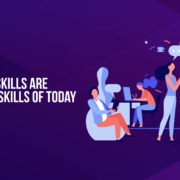It is very common today for most of us to divide our time and energy between the real world and the virtual world. In our real world, there are work meetings, parties with family and friends, sports, physical exercise and the daily chores that supplement our lives. Then there is the virtual world with conference calls, emails, text messages, online banking, social networking, and shopping that we can do from the comfort of our computer 24 hours a day, 7 days a week. Most of us have adapted and acquired the skills necessary to be efficient in our virtual worlds, but have we taken the time to do so in the context of project management and how we manage virtual teams?
According to the traditional PMBOK® definition, a virtual team is “a group of people with a common goal who will fulfill their roles and where face-to-face meetings will be few or non-existent”. Although the traditional image of a virtual team is one in which all members are permanently located in different geographic areas, a virtual team can also include situations in which team members are temporarily absent due to business travel or working remotely from home or another office. There are also situations where most team members are in the same location and only some are dispersed. At this point, many of us could technically be working in a virtual team without even realizing it.
Virtual teams and traditional teams share many of the same opportunities and challenges, but virtual teams carry an additional level of complexity. From the outset and in order to “bridge” the gap, the team should have a stronger focus on the “high-level” aspects of the project.
Team building in a traditional project environment is largely the result of face-to-face sharing of experiences and informal interactions. In virtual teams, this is often not the case, which can result in a lack of trust between team members as well as limitations in knowledge transfer.
The project leader should consider having at least one live meeting at the beginning, and periodically if the project is long-term. When this is not possible, taking advantage of tools such as video conferencing and chat rooms opens up the possibility for team members to get to know and “read” each other better, so that communication has a better chance of success throughout the project.
By Jamie Gelbtuch
Read more






